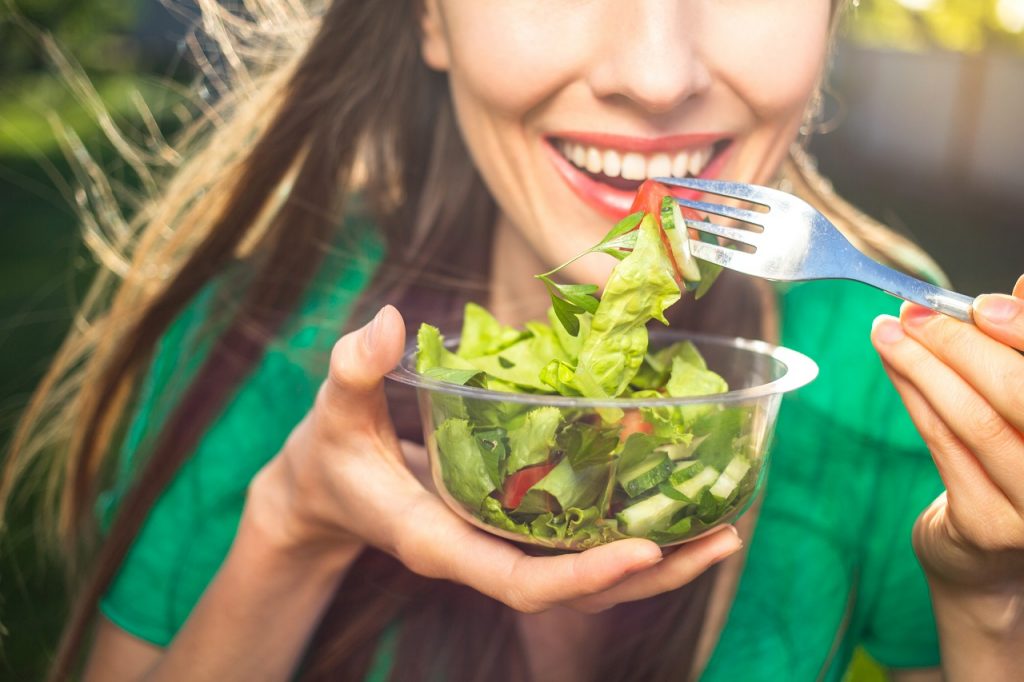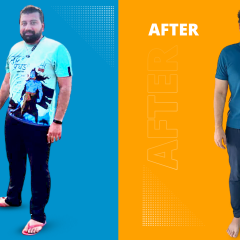 You might have been trying hard to lose that stubborn weight with sincere healthy food habits and sweating hard through physical activities. Despite your efforts, that scale doesn’t seem to budge. You might be wondering why. To understand why, you will need to understand what Obesity is.
You might have been trying hard to lose that stubborn weight with sincere healthy food habits and sweating hard through physical activities. Despite your efforts, that scale doesn’t seem to budge. You might be wondering why. To understand why, you will need to understand what Obesity is.
What is Obesity?
As per WHO, Obesity is a medical condition in which excess body fat has accumulated to an extent that it may have a negative effect on health. Various studies and meta-analysis have demonstrated that it increases the likelihood of various diseases and conditions, particularly cardiovascular diseases, Type2 diabetes, obstructive sleep-apnea, certain types of cancer, osteoarthritis, and depression. And Obesity is most commonly caused by a combination of excessive food intake, lack of physical activity, and genetic susceptibility.
Here are 5 common habits that eventually lead to obesity.
1. Eating Quickly
How many times have you quickly eaten your food while on a call or before rushing for a meeting or a chore without so much as even tasting the food?
This practice of eating quickly & unmindfully could be making you gain fat. Studies among middle-aged men and women have suggested that eating fast leads to obesity. Eating fast has been associated with childhood, general and abdominal obesity as well as greater consumption of food.
It takes approx. 20 minutes for the satiety signal/hormones to reach the brain from the stomach. And eating hurriedly overrides this mechanism of stimulating the satiety centre in the brain. Thus, eating too quickly makes you overeat, paving the way for obesity and related disorders. Eating slowly helps in portion control, makes you aware of when your stomach gets full and you also know how much to serve yourself and when to stop. Plus, chewing well promotes the release of salivary enzymes in the mouth and digestive juices in the stomach, which in turn starts-off the digestion process. Hence, eating slowly metabolizes food faster and more efficiently.
Be conscious while eating and take smaller bites. Eating slowly is associated with enhanced Postprandial Thermogenic Effect of Food, elevated serum adiponectin (a hormone which increases fatty acid oxidation and inhibition of hepatic glucose production) and suppressed Non Esterified Fatty Acid (major component of triglycerides/body fat). Try planning your meal timings along with the official meetings, not only for yourself but also for your subordinates and colleagues. This will not only improve your health but also the productivity. Be mindful when you eat.
2. Not Drinking Enough Water
I have seen people during my practice, who drink less than 1L of water and are still overweight despite eating healthy and being active throughout the day.
Water is critical to proper physiological and cognitive functioning. An average human adult is approximately 55-60% water by weight, whereas some obese people are as little as 15% water by weight. This is because fat tissues do not retain water as well as lean tissues do. Adipose tissue contains about 10% of water, while muscle tissue contains about 75% water. Plain water helps you have healthy muscle mass which is responsible for improving metabolic rate which eventually helps in fat loss.
Combined with physical activity, drinking water helps increase fat oxidation. Another study establishes the role of drinking 1.5L of excessive water in weight reduction, body fat reduction, and appetite suppression in overweight female participants. This is because water fills you up in zero calories and even suppresses appetite thus it acts as a natural appetite suppressant.
So go for plain water instead of too many milky teas/coffees, fruit juices, soft drinks and other so-called healthy energy drinks. If you find plain water boring, try adding slices of cucumber, lemon or your favourite fruit, any condiments/spices to add a dash of flavour and enjoy the drink.
3. Not Getting Enough Sleep
Sleep deprivation has become a hallmark of modern societies. There are many factors such as frequent travel to different time zones, social and tech changes, internet, social media and so on that contribute to inadequate sleep.
Sleep deprivation increases obesity or weight gain because of the metabolic and endocrine alterations, including decreased glucose tolerance/insulin sensitivity, increased evening concentrations of cortisol, deranged hunger hormones, and the individuals who are awake longer will be exposed to food stimuli resulting in wider waist circumferences, which are proven in various studies.
Good sleep helps you to eat better, exercise better, keeps hormone levels in balance and stay healthier. Try these tips to sleep better.
4. Kitchen Grocery
Have you ever looked at the kind of food you have in your kitchen cabinets? I am sure there you will find all sorts of processed foods in colourful packets of biscuits, cereals, toast, cookies, beverages, fruit juices, etc.
Such food tends to cause major spikes in blood sugar levels, which leads to a subsequent crash in blood sugar which can then trigger hunger and cravings for more high-carb foods. This is the “blood sugar roller coaster” that many people experience. Such foods lack essential nutrients. In other words, they are “empty” calories. The added white sugar is another story altogether, it’s the absolute worst and linked to all sorts of chronic diseases.
Whole foods are loaded with nutrients and fiber, and don’t cause the same spikes and dips in blood sugar levels as the processed food. Remember: A low-fat cookie is still a cookie! So, aim to store whole grains, healthy fats, lean proteins, fruits and vegetables in your kitchen grocery. This would naturally balance out your diet and lower your daily calorie intake.
5. Long Sitting Hours
As per WHO, more than 50% of the world’s population lives in urban areas. Most urban jobs revolve around electronic gadgets/devices which require long sitting hours. Traditionally, obesity has been thought to have been caused by the lack of a healthy diet and physical exercise. However, researchers have found that one hour of intense physical exercise does not make up for the negative effects of inactivity when rest of the hours of the day are spent sitting.
So don’t throw away all that hard work at the gym or park in the morning by hitting the couch for the rest of the day in office or at home. Try to work on your sedentary levels. It makes a big difference by being active throughout the day. Try these tips to remain active:
- Stand up and move after every 30 mins for 3 mins or for 5 mins every hour
- Walk around in your office
- Walk when you are talking over mobile
- Use stairs or park your vehicle at a distance from your office
- Keep water bottle away from your table, so get up every hour to get water
- Go to your colleagues to discuss something or share a document
- Swap TV time with hobbies or a sport or household chores
We hope this article helps you understand what causes obesity and take necessary measures to curb it. For more on obesity and how to reduce weight, check out Healthy Reads.
To get the right guidance on how to lose weight and sustain it in a healthy way, speak to a certified expert by subscribing to GOQii’s Personalised Health Coaching here.
#BeTheForce

 They say real beauty comes from within. Well, people may have different perspectives over this quote but in the opinion of a Nutritionist, what food you put inside your body, is what reflects on your skin! Ageing is a normal physiological phenomenon which starts from the inside out. This makes it imperative to take care of your diet to prevent the effects of ageing. With advancing age, the proteins and pigments of our skin start to deteriorate. However, with a healthy lifestyle and good nutrition, in the absence of disease, one can still manage to have a plump skin. Just like our emotional troubles can be seen on the face by the way of our expressions, the internal troubles of our body show up on the skin. If you feed your body with the right kind of food, it radiates right on the skin. Let’s look at some foods to get that younger looking skin you’ve always wanted!
They say real beauty comes from within. Well, people may have different perspectives over this quote but in the opinion of a Nutritionist, what food you put inside your body, is what reflects on your skin! Ageing is a normal physiological phenomenon which starts from the inside out. This makes it imperative to take care of your diet to prevent the effects of ageing. With advancing age, the proteins and pigments of our skin start to deteriorate. However, with a healthy lifestyle and good nutrition, in the absence of disease, one can still manage to have a plump skin. Just like our emotional troubles can be seen on the face by the way of our expressions, the internal troubles of our body show up on the skin. If you feed your body with the right kind of food, it radiates right on the skin. Let’s look at some foods to get that younger looking skin you’ve always wanted!  Do you love your traditional uttapam? Well, you’re about to love this healthy twist we’ve added to it more! Quick, easy to prepare and nutritious, the Oats Sprouts and Vegetable Uttapam is a mouthwatering recipe just as it is healthy. As it is made with oats, it provides better satiety too. Let’s get started!
Do you love your traditional uttapam? Well, you’re about to love this healthy twist we’ve added to it more! Quick, easy to prepare and nutritious, the Oats Sprouts and Vegetable Uttapam is a mouthwatering recipe just as it is healthy. As it is made with oats, it provides better satiety too. Let’s get started! 


